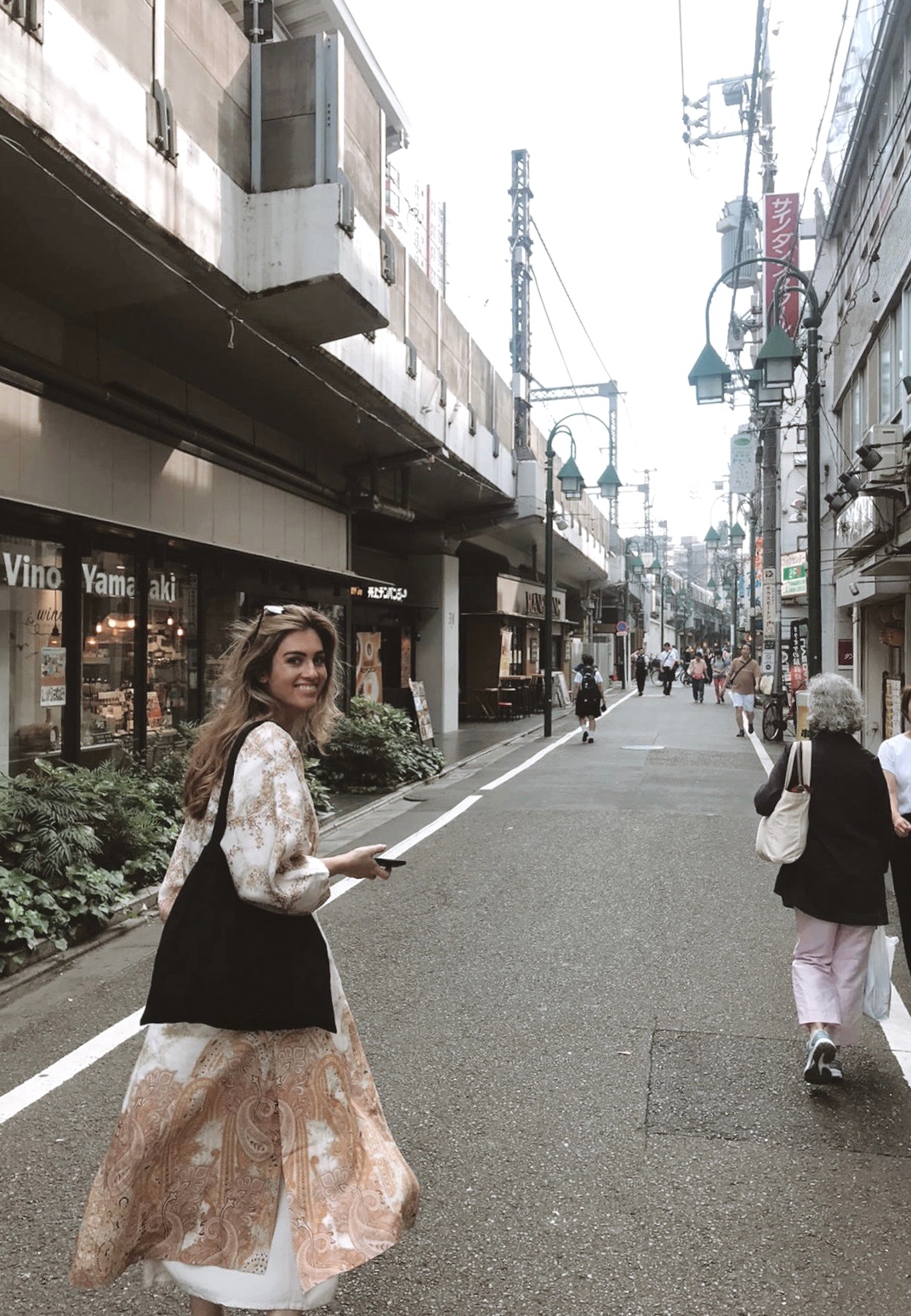Alexandra’s New Colombo Plan (NCP) program has opened her eyes to the important role of traditional medicine in Japan.
Studying a Bachelor of Science at the University of Melbourne is Alexandra Pozzo’s pathway to becoming a medical doctor. Throughout the pandemic Alexandra worked at Monash Health in clerical and patient services roles in their COVID-19 ward and intensive care unit. This experience made it clear to her that Australia's global connections are of utmost importance when tackling the most complex of healthcare issues.
Alexandra saw being a NCP Scholar as an opportunity to develop these connections and pursue her research interests in supplementary therapies. The opportunity to study in Japan has been a perfect fit for Alexandra.
“I chose Japan for my NCP program as the population has one of the greatest life expectancies globally. This is attributed to lifestyle and diet and complemented by an outstanding healthcare system that combines modern pharmaceuticals with Kampo medicine, the traditional form of herbal-based therapy in Japan.”
Alexandra’s overarching goal for the NCP program was to observe Kampo usage in clinic and take part in university research on the subject.
“I have an immense interest in cancer pharmacology and supplementary therapies that have the potential to improve the quality of life of patients. Unlike other traditional therapies, Kampo is not designed to supersede modern pharmaceuticals but is rather utilised in Japanese hospitals and clinics as a gentler therapy for minor ailments or in conjunction with modern therapeutics to reduce systemic side effects. Kampo is a standardised, codified pharmaceutical system in Japan and is covered by national insurance.”
Japan’s unique interconnection of traditional and western medicine has inspired Alexandra to find opportunities for Kampo’s practical use in Australia’s healthcare system.
“Japanese traditional medicine remains very integrated with western therapies yet recognises psychosomatic causes and the personal constitution of a patient. Whilst this outlook differs from what is practised in Australia, I firmly believe in maintaining an open mind in medicine, as we are yet to uncover solutions to our many significant medical problems.”
Beyond the research lab, Japanese society and culture have already left a positive impression on Alexandra.
“When first arriving in Japan, I was very impressed by the high level of organisation and structure of Japanese society. I also admire how considerate the community are of one another and how welcoming they were towards me as a foreigner.”
Adjusting to life in Japan has not been too difficult for Alexandra and she has embraced the different social customs.
“I have greatly appreciated societal adaptations based on consideration for one another including bowing out of reverence, maintaining peace on public transportation by switching your mobile phone to silent-mode and waiting patiently for pedestrian lights to go green prior to crossing. Of course, Japanese cuisine has also been a delightful adjustment!”
Some tips Alexandra has for those who are starting an NCP journey of their own focus on communicating what you are passionate about.
“Make your passions and interests known at your host institution. The Japanese are understandably proud of their rich history and culture, and Keio University student services were flattered to meet a foreigner that had taken a particular interest in their traditional form of therapeutics, swiftly connecting me with like-minded individuals.”
Alexandra also offers some practical suggestions for anyone undertaking an NCP experience.
“Arrive with an open mind, a light suitcase, and comfortable shoes, as stair climbs are immensely common in Tokyo! Also, do not be afraid to power-nap on public transportation like fellow Tokyo inhabitants.”
Alexandra’s NCP experience has only just commenced but has already been very fulfilling.
“My first month in Japan has been remarkable. I feel very honoured to be mentored by Professor Tomonori Nakamura at Keio University and to be shadowing students in their research on next-generation therapeutics and traditional Kampo pharmaceuticals. I am immensely grateful to the Australian Government and DFAT for providing me with this invaluable experience, and I look forward to discovering new treatment pathways for patients in Australia as an NCP alumnus.”
Alexandra has plans to see the sights of Tokyo and Kamakura, Japan’s old capital city, with the Keio University faculty and students before moving on to the next component of her program.
“My time in Japan seems to be travelling quickly, and I will be extremely sad to say "Sayōnara" to the team at Keio. I am however looking forward to delving deeply into language training and further studies in Kyoto.”
The NCP is an initiative of the Australian Government. The program aims to lift knowledge of the Indo Pacific in Australia by supporting Australian undergraduates to study and undertake internships in the region.




